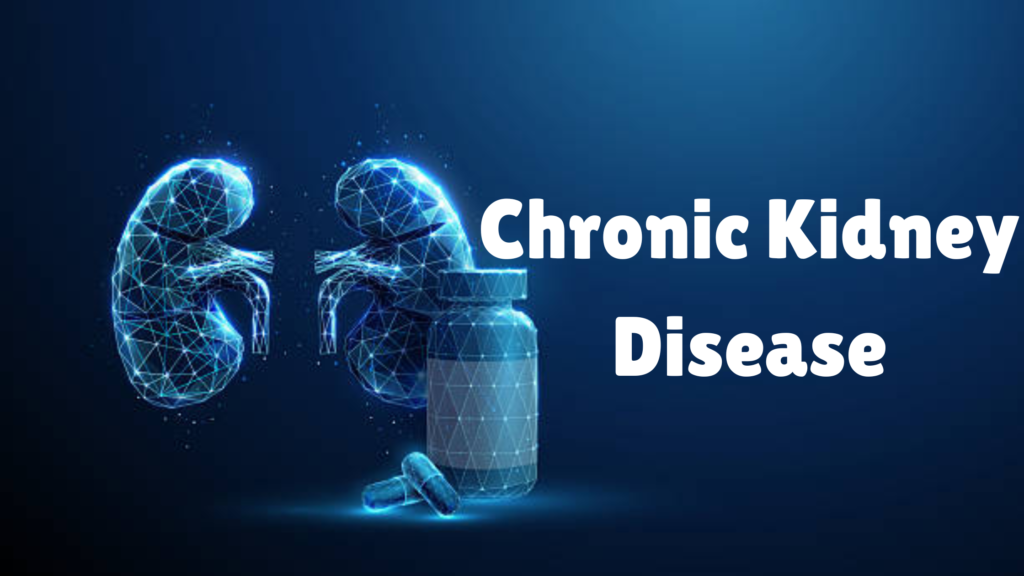Chronic Kidney Disease (CKD) is a progressive and often irreversible condition where the kidneys gradually lose their ability to filter waste and excess fluids from the blood. This decline in kidney function can lead to complications such as high blood pressure, anemia, weak bones, and nerve damage.
🩺 Symptoms of Chronic Kidney Disease
In the early stages, CKD may not present noticeable symptoms. As the disease progresses, individuals might experience:yalemedicine.org
- Fatigue and weakness
- Swelling in the legs, ankles, or feet (edema)
- Foamy or bubbly urine
- Frequent urination, especially at night
- Dry, itchy skin
- Shortness of breath
- Loss of appetite and nausea
- Muscle cramps and sleep disturbances
- Chest pain or a metallic taste in the mouth
- Elevated blood pressuremayoclinic.
🔍 Causes and Risk Factors
The leading causes of CKD include:kidney.org+3niddk.nih.gov+3theaustralian.com.au+3
- Diabetes: High blood sugar levels can damage kidney blood vessels.
- Hypertension (High Blood Pressure): Increases the strain on kidney blood vessels.
- Heart Disease: Linked to kidney dysfunction due to shared blood vessel issues.
- Obesity and High Cholesterol: Contribute to kidney damage.
- Age: Risk increases with age, particularly over 60.
- Family History: Genetic predisposition plays a role.
- Smoking: Accelerates kidney damage.
- Chronic Kidney Infections or Stones: Can lead to kidney damage over time.
In India and parts of Asia, CKD is often linked to glomerulonephritis, exposure to toxins, and the use of certain traditional medicines.
🧪 Diagnosis
CKD is diagnosed through:
- Blood Tests: To assess kidney function (e.g., serum creatinine levels).
- Urine Tests: To detect protein or blood in the urine.
- Imaging: Ultrasound or CT scans to visualize kidney structure.
- Kidney Biopsy: In certain cases, to examine kidney tissue.
Early detection is crucial, as CKD often progresses silently without symptoms.
💊 Treatment Options
While CKD cannot be cured, its progression can be managed through:
- Medications:
- ACE inhibitors or ARBs to control blood pressure.
- Diuretics to reduce swelling.
- Erythropoiesis-stimulating agents and iron supplements for anemia.
- Statins to manage cholesterol levels.
- Phosphate binders and calcium supplements for bone health.
- Dietary Modifications:
- Low-protein, low-sodium, and low-potassium diet.
- Fluid restriction if necessary.
- Limiting phosphorus intake to protect bones
- Dialysis: For end-stage kidney failure, dialysis (hemodialysis or peritoneal dialysis) may be required to perform the kidneys’ filtering function.
- Kidney Transplant: In suitable candidates, a kidney transplant offers a potential cure.
Managing underlying conditions like diabetes and hypertension is essential in slowing CKD progression.
🌍 Impact and Prevention
CKD is a significant global health issue. In Australia, for instance, early intervention could reduce cardiovascular events by 48%, dialysis by 55%, and overall CKD-related mortality by 7.3% over 25 years. Economically, this could save the nation $25.2 billion and retain 200,000 full-time workers
Preventive measures include regular screening for at-risk individuals, maintaining a healthy lifestyle, and managing chronic conditions effectively. Early detection through simple tests can significantly slow disease progression and reduce the likelihood of requiring dialysis.
